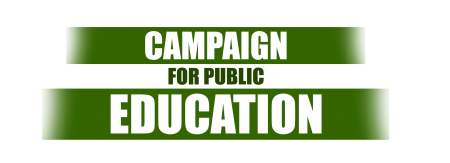Education Charter – a vision for Ontario
To ensure a healthy democracy we as a society need an educated electorate. A quality public education is the right of every Ontarian. To ensure that all residents of Ontario receive a quality public education that meets their individual needs and serve them well in later life, the following are essential:
- Funding of school boards must be based on the needs of their students. Presently, Ontario spends the lowest rate in Canada on education.
- Decisions made on educational spending must come from a locally elected school board that is directly responsive to the electorate. These trustees should be responsible for transparent policy, budget, human resources and bargaining decisions. Local education taxation powers should be reinstated to trustees.
- Access to education must be equitable and affordable from early childhood through programming for older adults and designed to improve the educational outcomes of students having disproportionately lower educational outcomes than their peers including indigenous/first nations students, African Canadian, Black, Caribbean, Latinx, Portuguese and LGBTI queer and two-spirited students.
- Students should be ensured local well – maintained schools that are the hubs of their communities. Services such as health centres , social services , seniors programmes and nutrition should be provided within these school settings. Funding for adequate staff and the capital to maintain safe, well maintained schools is essential.
- Constructing new schools as population warrants is prudent. They should include community facilities. New development in an area should contribute to both the renewal of existing schools and the building of potential new schools. Utilization rates should include the implementation of community hubs.
- Caps on class size and class composition should be determined with the interest of the students in mind. Small – scale delivery is supported in research. Small schools, small classes, small teacher/pupil ratios are needed.
- Ensure that learning takes place within a safe environment that fosters a sense of social identity and social skills.
- Sufficient staffing and resources should be guaranteed to meet the needs of all special needs students and their families. ESL courses should be provided for those in need. Guidance councilors are a necessity.
- Funding for classroom resources must meet the needs of a quality education.
- Restore a well – rounded and inclusive curriculum that includes the arts, trades, physical/health education, libraries, languages, nutrition education, science and the environment taught by trained/ certified staff.
- Recognize that students need access to up-to-date technology in the classroom but that it should not replace the real life social interactions that students need with both teachers and each other.
- Ensure teaching of the “whole child” and student by replacing standardized testing with teaching skills such as critical thinking that lead to life-long learning.
- Uphold ‘Access Without Fear’ policies that enable all students, irrespective of immigration status and age to access schooling with no form of discrimination (including fee discrimination) so students feel welcome and safe.
- Provide a fully funded and robust adult education system that includes credit secondary school courses plus non- credit courses including English as a Second Language, LINC, Literacy and Basic Skills, Native Languages, Citizenship, Parenting and Family Literacy programs, affordable and accessible seniors and General Interest programs.
- Education for democracy means practicing democratic values throughout the system. The practice of top down, unresponsive and authoritarian educational administration undermines innovative practices, teacher initiative and school morale. The role of administration should be to support and respond to needs in an inclusive and cooperative manner.
Recent Posts


